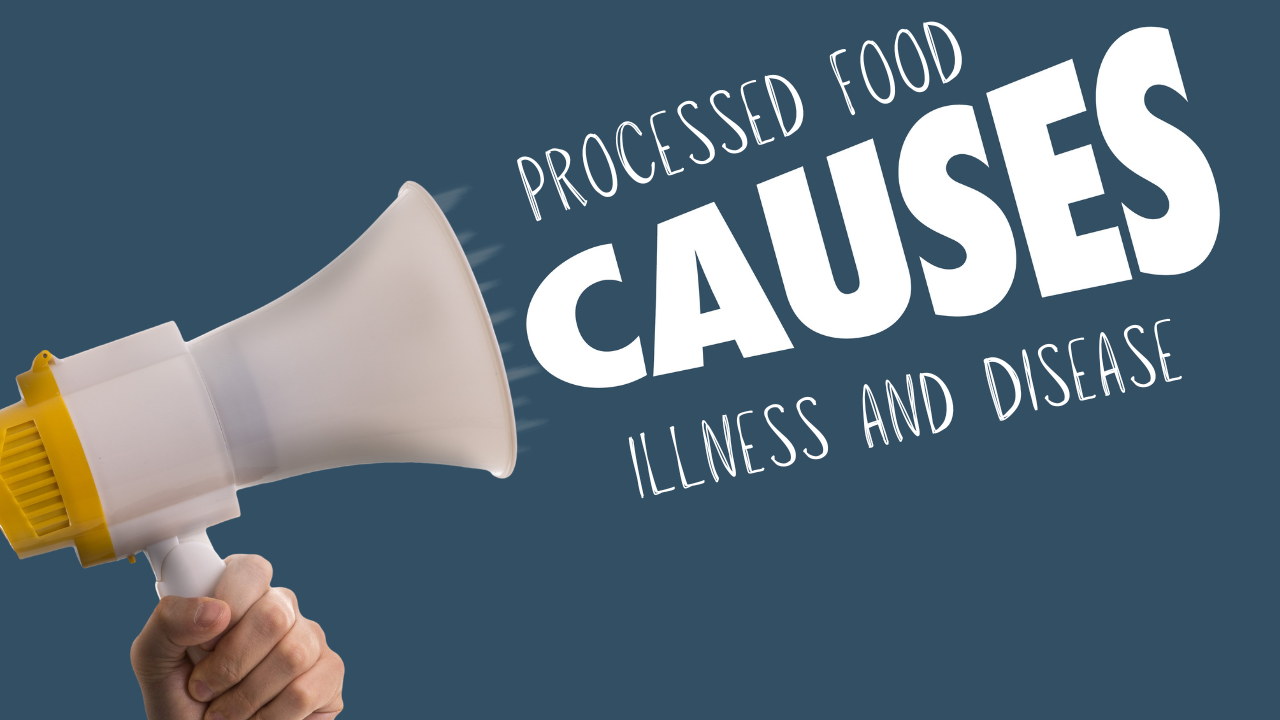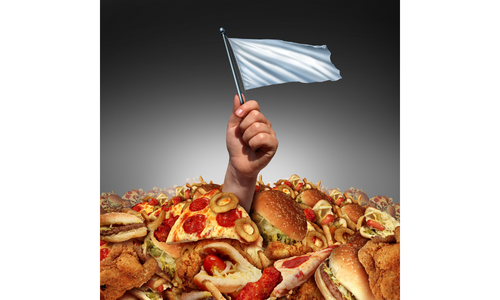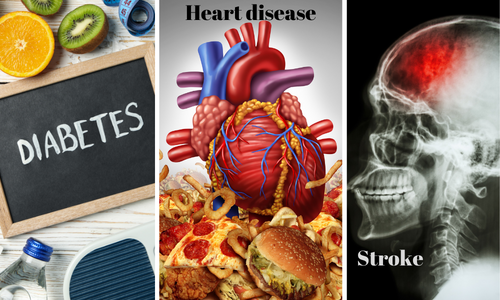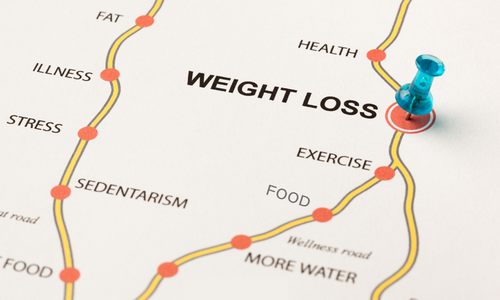Processed foods cause Illness and Disease

Issue No. 9 | Brought to you by the Addiction Reset Community – ARC
Unlocking the secrets of processed food addiction and guiding you to find freedom from food and weight obsession.

Scientific research has found that processed foods are associated with over 100 diseases of all kinds. Many physical, mental, emotional, and behavioral health conditions can be traced back to processed foods - despite the food and pharmaceutical industries not wanting you to know this. They’re making extraordinary profits from selling addictive processed foods and then selling pharmaceuticals to mask the consequences of processed foods.

The list of diseases describes a disturbing range of problems when considered all together. While not every processed food user develops every disease, repeated use of processed foods increases the risk of developing any one of these diseases in people of all ages.
Physical Diseases
Extensive physical disabilities have been demonstrated including diabetes, heart disease, stroke, obesity, infection, cancer, joint and bone disease and inflammation. The physical problems are extensive.

Mental Illnesses
Research also reveals that a variety of mental illnesses are also present in processed food consumption. These include ADD, Alzheimer’s, dementia, binge-eating disorder and addiction.
Emotional & Emotional Disorders
Emotional issues add to the misery, manifesting as depression, irritability and anxiety, while behavioral problems manifest as poor impulse control/disruptive behavior, fatigue, poor quality of life and sleep disorders.
Despite the overwhelming evidence of the association between processed foods and these illnesses, attempts to treat overeating of processed foods have not helped, and in some cases, have made diseases worse. The failure of weight-loss schemes is measured at 95% and above. Weight-loss surgery patients exhibit slow weight regain and a tendency to develop alcoholism.

Pharmaceuticals add to the distress, with side effects such as weight regain, heart disease, suicide ideation, memory loss and heightened anxiety, hypertension and bowel leakage.
What has worked for managing these negative health consequences, is eliminating processed foods in favor of unprocessed foods. With the right support, cravings and the urge to overeat do gradually diminish.
In the Addiction Reset Community – ARC, we hear stories daily of how people are noticing the symptoms of long-suffered illness and disease, fading away. Our members are taking back control of their health and their lives.

Within the Addiction Reset Community (ARC) our members and their journeys are important to us. We find their stories inspiring and hopeful for everybody in health recovery.
“This morning I had the pleasure of a walk in the woods. The peaceful tranquillity of dappled sunlight, the fresh vibrant green of new growth, the soft bounce of decaying leaves and scattered needles under my feet. Breathing in the cool, clean air brought calm into my being.
When I look back on my life I see so much darkness. I see wasted years of hiding, lying, pretending. Years of cloaking myself in my sickness. I held my disease close to me. At first it seemed to bring safety and companionship, but I came to understand it was actually a shroud. I wondered how any good could come from my lost years of pain.
After entering recovery and joining the ARC, I have come to realise nothing Is wasted. Every sadness, every lapse, and every failure has brought me to this new way of living. As I keep my mind and perspective focused on recovery, growth, and living, I find that my pain has become a nurse log — a rich source where all that is needed to bring life where once was only darkness.
Whatever your plans, I wish everyone a glorious, abstinent day.”

Many people reach out to Joan asking for advice and assistance on how they can begin their recovery journey.
Dear Joan:
I keep trying to quit the sugar and processed food for the past 2 years but even after a month or two of eating clean, I still have days where I just can’t stop over-eating or binging on processed food. Why is it taking so long to get control over my food? I am really trying to quit processed food but feel like I am battling with my own thoughts. On one hand, I feel so determined that I can do this, but then it’s like another voice in my head takes over and I can’t help myself. Why does this happen and will these thoughts to eat processed food ever go away?
Joan responds:
Ending loss of control takes a long time because the food industry has been teaching the reward pathways in our brains to crave for decades. By putting addictive sugars, excessive salt, and fat into our food and addicting our reward pathways, and then surrounding us with advertising and availability, the processed food industry has deeply addicted our brains. It could take years to reteach those brain cells to stop craving and stay calm when stimulated by advertising and availability. It is critical to learn recovery skills and be immersed in supportive recovery messaging as a means of retraining the brain and regaining control. Firstly, I want you to know that this loss of control is not your fault. I hear you are determined and committed to getting back control, which is an excellent place to start. Research shows very clearly that loss of control over food comes from hyperactive addicted brain cells in the reward centers of the brain. These brain cells can be trained to stay calm in the face of food stimulation. Until training can take effect, the brain floods with craving neurotransmitters and we are helplessly in the grip of the addiction.
Brain training is key to gaining control of behavior with food. Get into a support group that teaches the addicted brain cells not to respond to food and stress stimulation. This can be done.
DISCLAIMER:
Dr Joan Ifland (PhD) is a global expert on the subject of processed food addiction and is not a medical doctor. Information and response shared in this Newsletter are not intended for, and should not be construed as medical advice.

Do you have a question? Reach out to us with your questions about food addiction and recovery at gethelp@foodaddictionreset.com
Are you showing signs of Processed Food Addiction? Take this self-quiz to find out now!
Recent copies of Dr Joan Ifland's Blog:
Issue 01 | Issue 02 | Issue 03 | Issue 04 | Issue 05 | Issue 06 | Issue 07 | Issue 08

